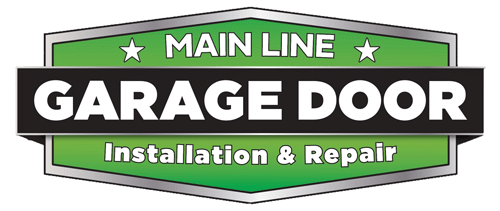Do you have a noisy garage door? While it can be awfully irritating to hear it create loud sounds every time it closes or opens, the reason for the sounds is almost never good. Unusual sounds coming from your garage door can be a sign of a greater problem impeding its performance or signaling a broken part — but why is my garage door so loud in the first place? To help identify the source of your noisy garage door, here are four problems to look out for and their associated sounds.
There Are Loose Parts
Garage doors are able to function thanks to multiple components and moving parts working in tandem with one another — however, when one or more of these parts become loose, they won’t work as smoothly as they once did and will create noise as a result. Pinpointing which component is responsible for your noisy garage door can be tricky, so here’s a breakdown of which parts you should examine based on the sound they’re making:
A Vibrating or Rattling Noise
The rattling of bolts that have grown too loose can be heard when the garage door closes and opens. Even though they can be small, loose bolts can make a loud noise when detached. It is worth noting that over-tightening bolts isn’t a better alternative, as doing so can also damage garage doors in the process. Hire a professional to help tighten your loose bolts, as they’ll know what’s best for them.
A Grinding or Squeaking Noise
The metal rollers and hinges of your garage door might need to be tightened if you hear squeaking or grinding. However, it may also be a sign that they have grown too old and are deteriorating. If that’s the case, then you should have them replaced.
A Slapping, Smacking, or Rattling Noise
When the chain of the garage door is loose, it can create several noises in response. Should you hear a smacking sound against the track, then you’re possibly hearing the shaky movements of a loose chain.
A Part May Need Lubrication
A noisy garage door may just need to be lubricated. For example, the garage door rollers may rub and make a squeaking or grinding sound without proper lubrication. Lubricating the parts of your garage door every two months or so is considered ideal for preventing unwanted sounds and, perhaps more importantly, keeping it running smoothly.
The Tracks Have Become Bent
Another reason you may hear a grinding sound has to do with the rollers — except this time, it may be because of the track they’re on instead. If your garage door has a hard time opening and closing, the metal track could possibly have been bent and needs an adjustment. When you operate the door, listen for a loud rubbing noise to tell if its track is bent.
There’s a Problem With the Springs
Springs are an integral component of the garage door mechanism, and can also be the noise culprit if you hear scraping, squeaking, or banging. Without having balanced springs, it puts more stress on the opener and can make the door create a crashing sound when it hits the floor. Snapped extension or torsion springs can be a serious threat, so it’s important for you to call for assistance when you hear the aforementioned noises and notice the springs are damaged. Replacing a broken spring by yourself and without experience is very dangerous, so always call a garage door professional to take care of it.
Why Is My Garage Door so Loud? Whatever the Case May Be, We’ll Help Quiet it!
No matter why you may have a noisy garage door, know that our trained team will be there to help! Main Line Garage Door offers a variety of services, including garage door repairs, replacements, and more, to ensure that your door remains quiet and is in good condition. For more information and to schedule your appointment, call us today!
